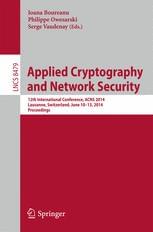Posted In: NewsSocial MediaTechConsumer TechElon MuskFacebookInstagramLayoffsLex Fridman PodcastMark ZuckerbergMetaPeople In Techtech layoffstwitter.



Government can give Universal basic income to everyone.
https://www.msn.com/en-us/money/other/the-a-i-endgame-is-tha…st-says/vi
Ben Goertzel, CEO of decentralized artificial intelligence marketplace SingularityNET, says “there are far more rewarding things for humans beings to do than [scrambling] around to get resources.”
Today, we explore a timelapse of the future, specifically future technology. How will technology look 1,000 years from now? In the world today, many technologies are accelerating exponentially. Humans are discovering things that would mystify scientists even a few decades ago, but our progress resembles a blip in the grand scale of our technological evolution over the next millennium.
Sources:
https://pastebin.com/raw/1vAehwKn.
Founder: Peter Schumaker.
Chief Editor:
Tristan Reed.
Original soundtrack by Joseph McDade.

A groundbreaking study conducted by researchers from the Duke-National University of Singapore (Duke-NUS) Medical School has shown promising results in repairing damaged heart muscle by transplanting precursor stem cells into pigs.
The research, which focuses on regenerating heart tissue damaged by a lack of oxygen, could revolutionize the treatment of heart failure in humans, a report shared by NewAtlas tells us.

The characteristics of the “egress complex” found in termite mounds can be replicated to enhance the optimize interior climate of buildings.
Of the approximately 2,000 recognized termite species.
A species is a group of living organisms that share a set of common characteristics and are able to breed and produce fertile offspring. The concept of a species is important in biology as it is used to classify and organize the diversity of life. There are different ways to define a species, but the most widely accepted one is the biological species concept, which defines a species as a group of organisms that can interbreed and produce viable offspring in nature. This definition is widely used in evolutionary biology and ecology to identify and classify living organisms.

Year 2014 😗😁
We propose PolyRef, a method for a polymorphic defense to defeat automated attacks on web applications. Many websites are vulnerable to automated attacks. Basic anti-automation countermeasures such as Turing tests provide minimal efficacy and negatively impact the usability and the accessibility of the protected application. Motivated by the observation that many automated attacks rely on interaction with the publicly visible code transmitted to the browser, PolyRef proposes to make critical elements of the underlying webpage code polymorphic, rendering machine automation impractical to implement. We categorize the threats that rely on automation and the available anti-automation approaches. We present two techniques for using polymorphism as an anti-automation defense.

A historical dream team of five master sculptors, including Michelangelo, Rodin and Takamura, have trained artificial intelligence (AI) to design a sculpture dubbed “the Impossible Statue”, now on show in a Swedish museum.
“This is a true statue created by five different masters that would never have been able to collaborate in real life,” said Pauliina Lunde, a spokeswoman for Swedish machine engineering group Sandvik that used three AI software programs to create the artwork.
Shaking up traditional conceptions about creativity and art, the stainless steel statue depicts an androgynous person with the lower half of the body covered by a swath of material, holding a bronze globe in one hand.

KEY LARGO, Fla. — A university professor who spent 100 days living underwater at a Florida Keys lodge for scuba divers resurfaced Friday and raised his face to the sun for the first time since March 1.
Dr. Joseph Dituri set a new record for the longest time living underwater without depressurization during his stay at Jules’ Undersea Lodge, submerged beneath 30 feet of water in a Key Largo lagoon.
The diving explorer and medical researcher shattered the previous mark of 73 days, two hours and 34 minutes set by two Tennessee professors at the same lodge in 2014.

Tesla is preparing to ramp up 4,680 battery cell production in Fremont, California. The company recently signed a lease for a new manufacturing facility for essential battery technology that will likely be used for 4,680 cell production.
Sources familiar with the matter told the Business Times that Tesla signed a lease with the industrial real estate investment trust Prologis on a 210,000 sq.ft advanced manufacturing facility. One source shared that the facility would support Tesla’s 4,680 battery cell production.
In Q3 2022, Tesla tripled its 4,680 cell production compared to the previous quarter. Elon Musk and the rest of the Tesla board discussed ramping 4,680 productions at the third quarter earnings call last year.

We’ve been waxing lyrical (and critical) about Apple’s Vision Pro here at TechCrunch this week – but, of course, there are other things happening in the world of wearable tech, as well. Sol Reader raised a $5 million seed round with a headset that doesn’t promise to do more. In fact, it is trying to do just the opposite: Focus your attention on just the book at hand. Or book on the face, as it were.
“I’m excited to see Apple’s demonstration of the future of general AR/VR for the masses. However, even if it’s eventually affordable and in a much smaller form factor, we’re still left with the haunting question: Do I really need more time with my smart devices,” said Ben Chelf, CEO at Sol. “At Sol, we’re less concerned with spatial computing or augmented and virtual realities and more interested in how our personal devices can encourage us to spend our time wisely. We are building the Sol Reader specifically for a single important use case — reading. And while Big Tech surely will improve specs and reduce cost over time, we can now provide a time-well-spent option at 10% of the cost of Apple’s Vision.”
The device is simple: It slips over your eyes like a pair of glasses and blocks all distractions while reading. Even as I’m typing that, I’m sensing some sadness: I have wanted this product to exist for many years – I was basically raised by books, and lost my ability to focus on reading over the past few years. Something broke in me during the pandemic – I was checking my phone every 10 seconds to see what Trump had done now and how close we were to a COVID-19-powered abyss. Suffice it to say, my mental health wasn’t at its finest – and I can’t praise the idea of Sol Reader enough. The idea of being able to set a timer and put a book on my face is extremely attractive to me.